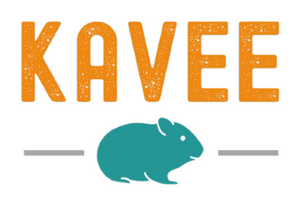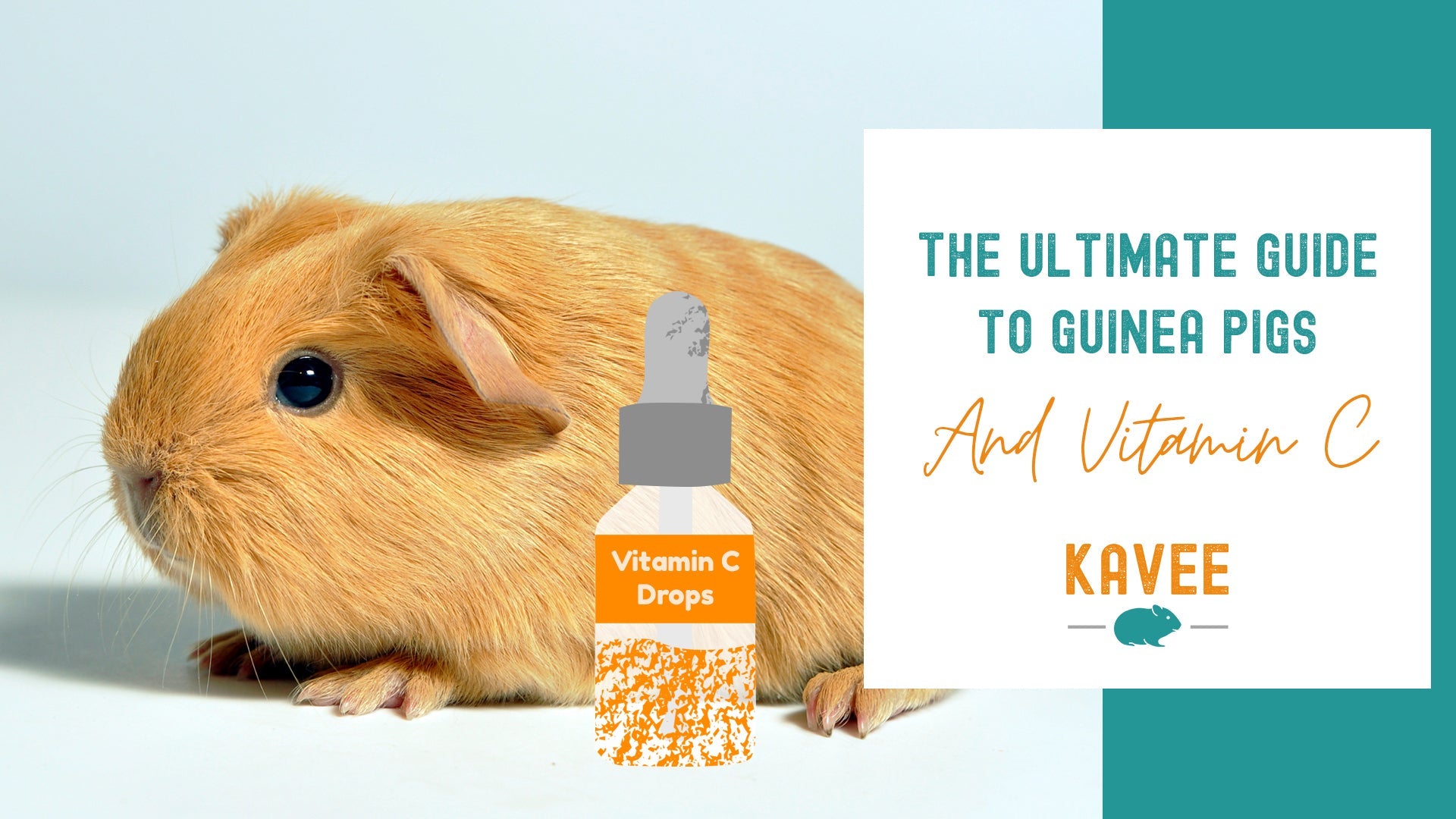Vitamin C is so important for a healthy guinea pig diet, we could just call it vitamin Cavy! The furry potatoes can’t make their own guinea pig vitamin C, so piggy parents have to make sure they provide the best source of vitamin C for guinea pigs. Let’s find out why vitamin c and guinea pigs have such a strong bond, what the best vitamin C foods for guinea pigs are, and how you can prevent and spot vitamin C deficiency in guinea pigs!
1. Why do guinea pigs need vitamin C?

Vitamin C helps our floofy friends maintain their healthy skin, a shiny coat, and overall health. Guinea pigs can’t produce their own vitamin C, so the furry potatoes have to get it from somewhere else - their food. After all, the little divas wouldn’t like anything less than perfectly shiny hair! Interested in piggy hair care for those with long luscious locks? Check out this blog on grooming long-haired guinea pigs!
There are lots of different vitamin C foods for guinea pigs - let’s find out about the best source of vitamin C for guinea pigs, so you can treat the little floofers to the perfect diet.
2. What are the best vitamin C foods for guinea pigs?

If you want to make sure your guinea pigs get enough vitamin C, then a healthy, balanced diet is a must. Hay is a staple in every piggy’s meal, and you can choose to give them high-quality guinea pig pellets as one of the best sources of vitamin C for guinea pigs. The perfect diet won't just keep your pigs' coat healthy - it'll also help with their dental health.
Many piggy parents select their pets’ daily veggies carefully, for the right balance between vitamin C and calcium. While guinea pig vitamin C is important for them, too much calcium can lead to health issues, like bladder stones. So fresh vitamin C foods for guinea pigs that are high in calcium, including parsley, kale, and other leafy greens, are great as a once-a-week snack, but no more than that. Other vitamin C-rich foods are low in calcium, like bell pepper and broccoli, so they’re better suited as a regular treat. Many guinea pig owners feed bell pepper in all its color varieties every day.
So while there are lots of vitamin C foods for guinea pigs, piggy parents have to balance their pets’ diet carefully for the right mix of healthy nutrients.
3. Do my pets need a guinea pig vitamin C supplement?

A healthy pig should get around 10 to 30 mg of vitamin C per kg of weight every day. A large slice of bell pepper per day can cover that (your pigs will be so excited to hear this!). But vitamin C deficiency in guinea pigs is still a concern in the piggy community, so some owners opt for vitamin C supplements for guinea pigs, including vitamin C drops for guinea pigs.
Unfortunately, some vitamin C supplements for guinea pigs don’t help much. Choosing healthy, fresh vegetables as part of a balanced guinea pig diet is a more reliable option for guinea pig vitamin C.
There’s also the risk of giving your guinea pig too much vitamin C, so it’s safest to discuss any guinea pig vitamin C supplement with a vet.
4. Should I get vitamin C drops for my guinea pigs?

Vitamin C drops for guinea pigs can actually cause more harm than good. By the time a few drops are in your pigs’ water bottle, they’ll be so diluted that a pig would have to finish most of the bottle to get enough guinea pig vitamin C for the day. Vitamin C drops for guinea pigs are also sensitive to light, so they are often not effective in clear water bottles. And some piggy owners have watched their pigs turn away from their water bottle because of the vitamin C drops for guinea pigs’ taste. So while the drops are intended as vitamin C supplements for guinea pigs, they can actually end up making things worse for your pets.
As with any vitamin C supplements for guinea pigs, there’s a risk of overdoing it and providing the pigs with too much vitamin C. It’s best to speak to a vet before adding vitamin C drops into a guinea pig’s water.
Why not try to make healthy treats for your pets?
5. What is vitamin C deficiency in guinea pigs, or guinea pig scurvy?

The name for a vitamin C deficiency in guinea pigs is guinea pig scurvy. If a guinea pig doesn’t get enough vitamin C through their diet, they can end up with guinea pig scurvy, a condition that affects the pig’s immune system and overall health.
Guinea pig scurvy should be treated by a cavy-savvy vet who can prescribe vitamin C supplements for guinea pigs in the right dose and help with pain relief. Piggy parents can spot vitamin C deficiency in guinea pigs with the tips below!
6. What are the symptoms of vitamin C deficiency in guinea pigs?

The symptoms of vitamin deficiency in guinea pigs, also known as guinea pig scurvy, are
- general tiredness and lack of enthusiasm for activities or food
- weight loss
- unhealthy skin and coat
- swollen joints
- unusual poop
If you spot any of these symptoms of vitamin C deficiency in guinea pigs, it’s time for a trip to the vet!

Conclusion
Finding a balanced diet for your pigs is the best source of vitamin C for guinea pigs. Healthy guinea pigs usually don’t need vitamin C supplements for guinea pigs or vitamin C drops for guinea pigs, which can actually do more harm than good.
If your pet seems unwell, it could be down to vitamin C deficiency in guinea pigs, also known as guinea pig scurvy. Your trusted vet can help your piggy with vitamin C supplements for guinea pigs, so you don’t end up giving your guinea pig too much vitamin C.
Remember: C is for Cavy - and all guinea pigs need vitamin C in their diet!







